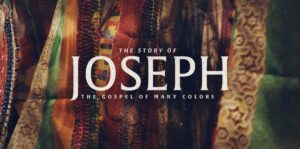The story of wrestling with God in Genesis 32 is one of the most potent moments in Scripture. Jacob’s long night of struggle shows how God humbles human pride, exposes weakness, and transforms brokenness into blessing. His encounter reminds us that true strength is found not in self-reliance but in surrender. When Jacob wrestled with God, he received not only a new name but also a new identity as the father of Israel.
In one night of struggle, he was humbled, broken, and renamed Israel. His story shows that true blessings do not come through self-reliance or manipulation, but through humility, repentance, and surrender to the Lord. The lesson of Wrestling with God is timeless: when God breaks our pride, He invites us to cling to Him for the blessing only He can give.
1. Humility in Wrestling with God (Genesis 32:1-12)
Jacob had lived most of his life as a deceiver and manipulator. His very name meant “grasper” or “supplanter.” From stealing Esau’s birthright to tricking his father, from scheming with Laban to striving for wealth, Jacob’s story had been marked by grasping for control.
But in Genesis 32, something shifted. When he heard Esau was approaching with four hundred men, fear overtook him. Jacob’s first recorded prayer revealed a heart beginning to change. Instead of scheming, he confessed his unworthiness and pleaded for God’s help. His story reminds us that wrestling with God starts with humility, not pride.
This was not a polished or powerful prayer; it was honest and dependent. Jacob finally admitted he could not save himself. That moment of humility was the first step toward blessing.
The lesson is clear: God opposes the proud but gives grace to the humble. Pride leads to schemes and destruction, but humility leads to dependence on God. Like Jacob, every believer must come to the end of self-reliance and turn to the Lord in prayer.
2. Repentance that Leads to Reconciliation (Genesis 32:13-21)
Repentance does not remain hidden in the heart; it produces outward change. Jacob’s repentance was evident in how he approached Esau. The man who once stole from his brother now sought reconciliation, sending wave after wave of gifts, more than 550 animals, in an attempt to make peace. Each servant carried the same message: “These belong to your servant Jacob; it is a present sent to my lord Esau” (v. 18).
This offering was generous, even extravagant, but it could not purchase forgiveness. Jacob’s heart seemed softened, yet forgiveness cannot be bought with gifts or sacrifices. Only God can grant true atonement.
True repentance always produces action. Jacob sought reconciliation with Esau, showing that when God changes people, they will also pursue peace with others. Jesus taught the same principle in Matthew 5:23-24: before offering worship, believers must seek peace with those they have wronged. Repentance without reconciliation is incomplete.
The lesson is timeless: forgiveness before God is a gift of grace through Christ, but reconciliation with others is the fruit of genuine repentance. Jacob could not undo his sins, but he could humble himself, acknowledge his guilt, and seek restoration.
3. Cling to God for the True Blessing (Genesis 32:22-32)
The climax of the chapter comes when Jacob wrestled with a mysterious man through the night—a man revealed to be God Himself. In the struggle, Jacob was wounded. His hip was dislocated, leaving him limping for the rest of his life. Yet even in weakness, Jacob clung to God and pleaded, “I will not let You go unless You bless me” (v. 26).
In that moment, Jacob confessed his name, “Jacob,” the deceiver. God responded with grace, giving him a new name: Israel, “he who strives with God.” Jacob left limping but blessed.
This encounter reveals the paradox of faith: God breaks His people so that they stop relying on themselves. Only in weakness do they cling tightly to Him. Jacob could not steal the blessing, nor could he earn it. God gave it by grace.
This wrestling match points forward to Christ. Humanity has always fought against God, but on the cross, Jesus took the crushing blow of judgment we deserved. Through Him, believers receive a new name, a new life, and the true blessing of God.
The lesson is simple: let God break pride and self-reliance. Cling to Him in faith, for His blessing is greater than anything we can steal, earn, or buy.
Conclusion
Jacob’s story of wrestling with God is more than a historical account; it is a picture of our own spiritual battles. God breaks pride, teaches dependence, and offers blessing through grace. In Christ, the greater blessing comes: a new identity, forgiveness, and eternal hope. Like Jacob, we find that when we wrestle with God, surrender leads to victory.
The story of Jacob wrestling with God is more than history; it is a mirror for every believer. God breaks pride, exposes weakness, and teaches dependence. Through Jesus Christ, the greater blessing comes: a new name, a new life, and eternal hope.
So, if you find yourself wrestling, let it drive you to God. Even if you walk with a limp, you can walk blessed, knowing you belong to Him.



